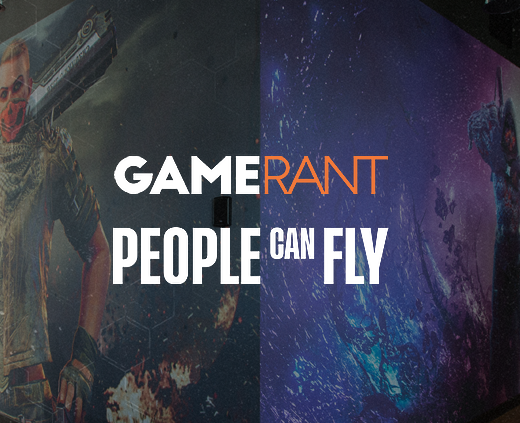PCF’S CEO INTERVIEW FOR GAMERANT
Get to know our company’s profile better. Learn more about our recent acquisitions and future global growth plans of People Can Fly.
GR: Was there anything that specifically attracted People Can Fly to Phosphor Games?
Sure, Phosphor Games used to work with Epic Games some time ago. So did PCF. So, we knew that those guys are talented and experienced. The most important thing for us is that we’re looking for teams who are experienced with Unreal Engine technology, and Phosphor Games was. The size was right for us, the talent was there, and the location was right too. It made a lot of sense.
GR: Are there any immediate plans for People Can Fly Chicago you can share?
People Can Fly Chicago is focusing on collaborating with our other teams on our existing games, so this is the immediate plan for them. I think this is important to always have this kind of ramp-up time to learn new workflows and pipelines and making sure that we are working together well. It’s also about production flow strategies and tools. So, each team needs this time at the very beginning, and then we will see what the future holds.
GR: Is People Can Fly Looking to grow the Chicago studio?
For sure, our goal is to strengthen this studio in Chicago. Right now it’s 18 people. Phosphor used to be much bigger and that’s our benchmark. We want to grow the team and take advantage of the talent pool that is in Chicago. So, this is just the beginning for this studio.
GR: Where do you see People Can Fly in 5 or 10 years broadly speaking?
I think the sky is the limit to be honest. Everything depends on how successful our strategy is going to be. We want to grow further, not necessarily opening very small studios, but each of the studios we own especially in North America, is set for further growth. We have New York. We’ve got Chicago. We’ve got Montreal. Our goal is to grow them organically and not only organically. If there are business opportunities, we will try to take them.
GR: For Game On, per the announcement on your website, People Can Fly is not making any exclusivity claims. How does this acquisition then impact your relationship, if at all, with the studio?
We’ve been long-term partners with Game On and now we will cooperate even closer; also, as a member of our group, Game On will get access to resources and capital. We will do our best to support the studio’s further development. But Game On remains independent and will continue to work with other clients from the gaming industry.
GR: Game On has previously done work on titles such as Marvel’s Avengers, The Outer Worlds, and of course, Outriders. What was it like working with the studio on Outriders?
Working with Sam Girardin and his team was a great experience for People Can Fly, and their input into Outriders was really significant. Actually, the level of cooperation with Game On was, for me, one of the main reasons behind this acquisition.
GR: With recent dealings, People Can Fly Chicago and Game On, being based in North America, what can you say about your plans for the region? Perhaps in comparison to plans in Europe?
We definitely want to grow in North America, that feels pretty natural, but we want to keep the right balance at the same time. The majority of our team is still located in Europe, with our Warsaw headquarters being around 200 people right now.
GR: So, we’ve got these two future projects that People Can Fly is working on. What about older IP like Bulletstorm?
As you can imagine, this IP, we hold very near to our hearts. We have tried from time to time to think about it, what would be possible. We’ve remastered the game and put it on new platforms like Switch, so we are still kind of trying to do something with this IP. There are no immediate plans right now. We hope that one day we’ll be able to come back to this IP, who knows what the future holds. Definitely, with growing bigger and getting new teams on board, it will be easier to come back one day to this IP.
Read full interview here: https://gamerant.com/people-can-fly-outriders-gemini-dagger-interview/









Follow PCF on: